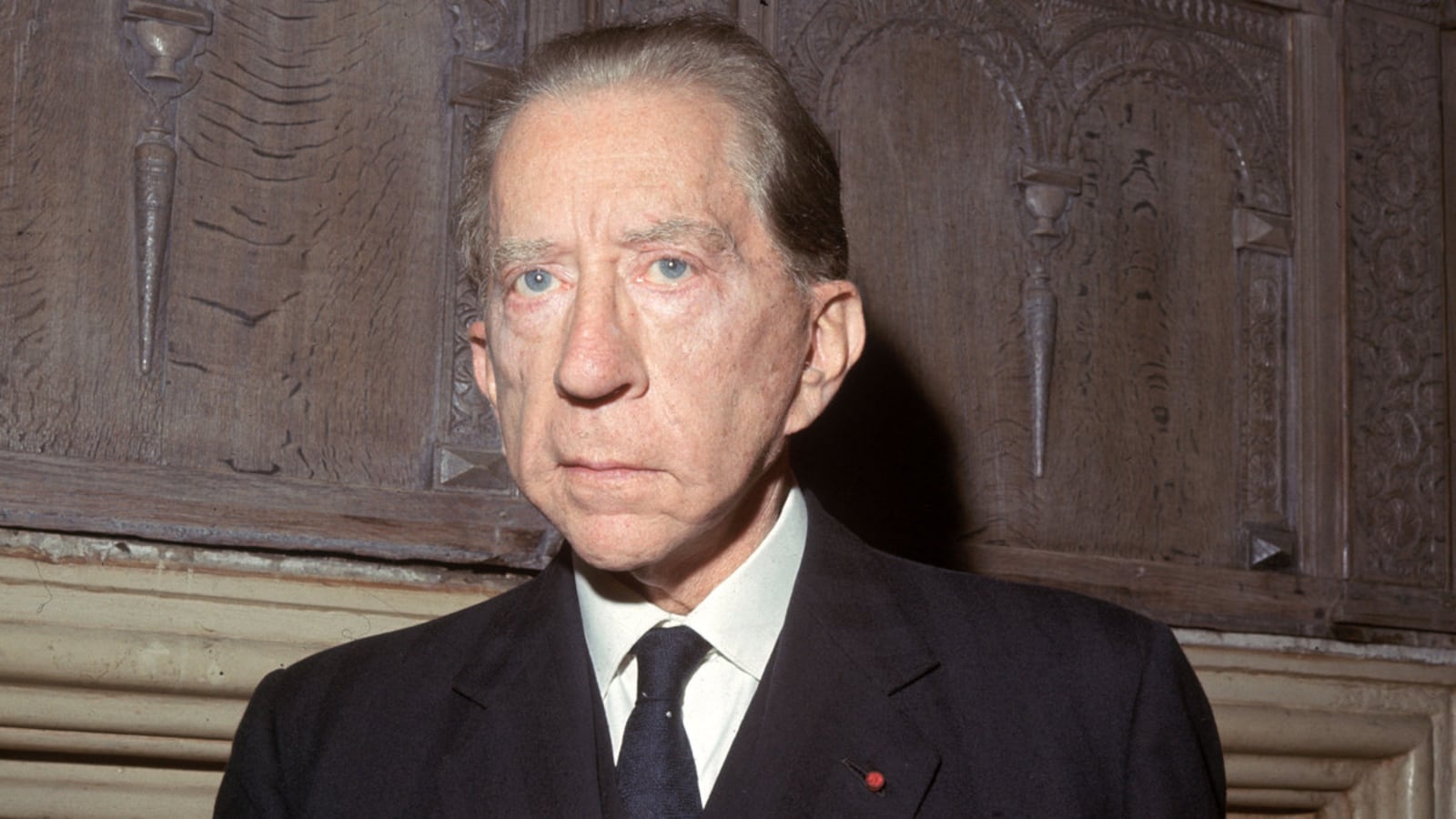In September 1957, the American oil baron J. Paul Getty traveled to Italy to visit his son Paul’s family. Earlier in the year, his youngest son, Timmy, had died from a brain tumor at the age of 12, and this time spent with family, including his first grandson “baby Paul” who had been born the year before, was a balm to his grief.
In his memoir As I See It, Getty chronicles the anxiety he felt during the trip when the infant Paul came down with a minor fever. “The loss of Timmy and the proximity of Paul III had turned me into a prototype of the overly doting, near-hysterical grandfather,” he writes.
Sixteen years later, Getty had officially established himself as the richest man in the world and his memoirs show that this new accolade had not changed his opinion of himself as a family man one bit. But his decidedly non-grandfatherly behavior in the face of family tragedy tells a different story.
In the early morning hours of July 10, 1973, that same grandson, now a young and rebellious teen, was kidnapped off of the streets of Rome. For five long months, John Paul Getty III was held captive by criminals loosely linked to the Italian mafia. His ordeal was traumatizing, culminating in his right ear being cut off and sent to a Roman newspaper. The one man who had the power and money to end his nightmare, his self-proclaimed “doting” grandfather, refused initially to part with even a penny of his substantial wealth to help.
History has shown that when business dons reach the status of filthy rich, they seem to go one of two ways. There are the Bill Gateses of the world, who pledge to give away a majority of their wealth to help the less well off (often without any mention of how their own business operations have contributed to the problems they are now tackling). And then there are the J. Paul Gettys of the world, who get more miserly with every dollar they earn. That son lost to a brain tumor? Getty was surely as grief-stricken as he recounts, but he also famously spent more time complaining about medical bills than at Teddy’s bedside.
But the Calabrian mafia didn’t know all this when they set their sights on the grandson of the richest man in the world for what they thought would be a quick payday. The joke, as it were, was on them.
Paul was only 16 when tragedy struck in 1973, but he was already living on his own in Rome. He was in the middle of a rebellious phase and had dropped out of school to embrace a bohemian lifestyle, spending his days and nights at parties and political demonstrations with the offbeat youth of Rome. After his parents divorced nearly a decade earlier, Grandpa Getty had cut the family off. So Paul funded his antics by making and selling art and jewelry. While he may not have had the Getty money, he still had the Getty name, and that earned Paul some notoriety in the Roman newspapers, who dubbed the teen “the Golden Hippie.”

John Paul Getty III, 1973
Bettmann/GettyAround 3 a.m. on July 10, Paul was walking home from a late night out, when a car pulled up next to him near the Piazza Farnazi. “Excuse me, signore. Are you Paul Getty?” the driver asked. Paul confirmed and was quickly scooped up, knocked out with chloroform, and spirited out of Rome. There were no witnesses.
Two days later, his kidnappers called his mother, Gail, to let her know they had her son. They didn’t immediately share their demands. They decided to play to stereotype and save that move for a ransom note constructed out of cut-out magazine letters that revealed their demand of nearly $17 million.
It was a lot of money, a number that wasn’t even in the stratosphere of possibility for Gail, who had been cut off from her ex-husband’s family’s fortune in exchange for custody of the kids. So she did what the kidnappers knew she would, what they told her to do when she told them she couldn’t pay: she turned to her former father-in-law for help.
For Getty, who was then worth $2 billion (or nearly $12 billion today), the ransom was just a drop in the vast money well. So, it must have come as a shock to the minor mafiosi when he revealed in no uncertain terms that he had no intention of participating at any price. At first, he believed the whole thing was a hoax cooked up by his ne’er-do-well grandson. It was a stance that was initially also embraced by the press, who avidly covered the Getty saga.
But even after it became clear that the kidnapping was real, Getty stayed strong… and blamed his grandson for allowing this situation to happen in the first place. Over the next five months, the kidnappers communicated with Gail, who attempted to communicate with Getty, who absolutely refused to take her calls. When he had something to say to her, he would give a statement to the press.
Hs earliest public statement said it all: “I have 14 other grandchildren and if I pay one penny now, then I will have 14 kidnapped grandchildren.”
Paul, meanwhile, had been stashed in the remote countryside in the south. In Painfully Rich: The Outrageous Fortune and Misfortunes of the Heirs of J. Paul Getty, John Pearson characterizes Paul’s treatment as “not so much cruel as callous,” and says that the criminals in charge of his day-to-day care dealt with him as they would one of their animals. He stayed in rudimentary shelters, was allowed to bathe in the river, was served cold spaghetti, and had a radio for company. But creature comforts were few and far between.
Shortly after the ransom demand was delivered, Paul was allowed to send his mom a letter. He pleaded for help: “Pay up, I beg you, pay up as soon as possible if you wish me well. If you delay it is very dangerous for me.”
For months, this situation continued. Getty sent a former CIA agent who worked for him down to Rome to help out, but otherwise refused to engage, and his agent mostly caused more problems than solutions. Gail grew increasingly despondent over how to help her son. Her ex-husband was on the outs with his father, struggling with addiction, and couldn’t bring himself to reengage despite Paul’s dire circumstances.
The head kidnapper, known as Cinquanta, periodically checked in with Gail, and even he grew outraged by the family response. In late July after no progress had been made, he yelled at her over the phone: “Who is this so-called grandfather? How can he leave his own flesh and blood in the plight that your poor son is in? Here is the richest man in America, and you tell me he refuses to find just ten miliardi [ten billion] for his grandson’s safety. Signora, you take me for a fool. What you say is just not possible.”
Over the next few months, a series of false starts and stops occurred in the attempt to negotiate. Getty’s agent thought he was being taken to meet with the kidnappers at one point, but he was duped. Gail was offered an in-person meeting with Paul, but as the instructions became increasingly detailed and a little crazy, the meeting was aborted as too risky.

John Paul Getty III, December 21, 1973.
Keystone/GettyAs the negotiations dragged on, the original kidnappers lost patience and several sold their position in the Paul Kidnapping Enterprise to others. The new players were more directly tied to the mafia, and more brutal. It was at that point that they decided to raise the stakes.
One chilly October morning, Paul was given a liberal amount of alcohol to drink. Then, he was given a haircut. It was when one of his masked captors began rubbing alcohol behind his right ear that he knew what was about to happen. With nothing to numb the pain but brandy and a towel to bite on, Paul’s right ear was cut off with a razor and mailed to a newspaper office.
It took three weeks to arrive. In typical fashion for a story that would be unbelievable if it weren’t true, the Italian postal service was on a strike, so there was a long delay in delivery. But once the ear arrived, the extended Getty family finally snapped into action.
Getty called a family council, and he struck a deal… one with both the kidnappers and his own son. The ransom was haggled down to $3 million—Getty agreed to pay $2 million, which, his lawyers advised him, was the maximum amount he was allowed to write off on his taxes. His son, Paul’s father, would pay the remaining $1 million, which Getty would benevolently loan him at a modest 4 percent interest.
The ransom exchange was eventually successful, and Paul was finally freed on Dec. 15. He was in bad shape and would forever be haunted by his ordeal, as evidenced by his 2011 New York Times obituary, which is almost entirely about the early nightmare that defined his life. The headline says it all: “J. Paul Getty III, 54, Dies; Had Ear Cut Off by Captors.”
For his part, Grandpa Getty staunchly defended his behavior for the remaining three years of his life. In his posthumously published memoir, he frames his initial refusal to pay as even more benevolent than trying to protect his other grandchildren: he was also trying to protect society as a whole. “I contend that acceding to the demands of criminals and terrorists merely guarantees the continuing increase and spread of lawlessness, violence and such outrages as terror-bombings, ‘skyjackings,’ and the slaughter of hostages that plague our present-ay world,” he writes.
He ends his thoughts on this chapter of his life by again painting himself as a doting grandfather, raving about all the fun that was had when a handful of his grandchildren visited him during the summer of 1975. “It was a most reassuring summer for Grandfather J. Paul Getty. It proved that despite anything and everything—be it wealth, divorce, tragedy, or any of the other myriad conditions and tribulations of life—the Getty family is a family and will continue to be one.”
Paul was not present for Grandfather Getty’s glorious summer. After his release in 1973, his mom made him call his grandfather to thank him for paying his ransom. Getty declined to speak with him.

